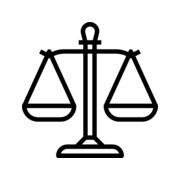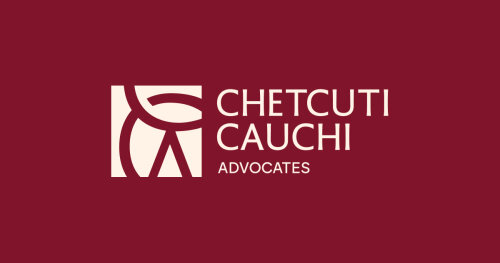Best Energy Regulatory Law Lawyers in Valletta
Share your needs with us, get contacted by law firms.
Free. Takes 2 min.
List of the best lawyers in Valletta, Malta
About Energy Regulatory Law in Valletta, Malta
Energy Regulatory Law in Valletta, Malta governs the generation, transmission, distribution, and supply of energy, covering both traditional and renewable sources. The city, as Malta's capital, is home to many national regulatory bodies and multinational energy companies, making it a central hub for energy policy and regulation. This legal field encompasses compliance with licensing requirements, tariffs, market operations, environmental concerns, and consumer protections. Regulatory frameworks ensure that energy operations in Malta are safe, fair, and in alignment with European Union directives.
Why You May Need a Lawyer
Individuals and businesses may need legal advice in Energy Regulatory Law for various reasons. Here are some common situations:
- Applying for or renewing an energy sector license
- Navigating compliance with complex Maltese and EU energy regulations
- Managing disputes with regulators, suppliers, or consumers
- Establishing a power generation or renewable energy project
- Structuring energy supply contracts and Power Purchase Agreements (PPAs)
- Participating in public procurement or tenders for energy infrastructure
- Obtaining permits and permissions for grid connections or facility construction
- Ensuring compliance with environmental and safety standards
- Responding to enforcement actions or investigations by authorities
- Advising on acquisitions, mergers, or joint ventures in the energy sector
Local Laws Overview
In Valletta and throughout Malta, energy is primarily regulated by the Regulator for Energy and Water Services (REWS). Key legislation includes the Energy and Water Services Act, the Electricity Market Regulations, and relevant provisions of the Environment Protection Act. Malta, as an EU member state, implements European energy directives, particularly those related to market liberalization, renewable energies, and energy efficiency targets.
Companies must obtain necessary licenses to generate or supply energy. There are specific legal obligations related to grid access, reporting, pricing, and renewable energy incentives. Compliance with environmental impact assessments is mandatory for many new energy projects. Consumers and businesses benefit from regulatory protections around tariffs, quality of service, and dispute resolution mechanisms.
Frequently Asked Questions
What is the primary regulatory body for energy in Malta?
The Regulator for Energy and Water Services (REWS) is responsible for regulating and overseeing energy markets in Malta, ensuring compliance with national laws and EU directives.
What types of energy activities require a license in Valletta, Malta?
Licensing is required for generation, distribution, importation, exportation, and supply of electricity and gas. Renewable energy operations, such as solar facilities, also require specific approvals.
How does Malta encourage renewable energy projects?
Malta promotes renewable energy through grants, feed-in tariffs, and regulatory incentives aimed at increasing the share of solar, wind, and other sustainable sources in its energy mix.
What consumer protections exist for energy users?
Consumers in Valletta benefit from safeguards on price transparency, fair billing, complaint resolution, and continuity of supply, all overseen by REWS.
Can foreign companies participate in Malta’s energy sector?
Yes, foreign companies can invest in Maltese energy projects, but they must comply with local licensing, environmental, and regulatory requirements.
Are energy prices regulated in Malta?
Retail energy prices are subject to government oversight, with tariffs set or approved by REWS to ensure affordability and transparency.
What are the environmental requirements for energy projects?
Most significant energy projects must undertake environmental impact assessments and comply with both national and EU environmental regulations to minimize ecological impact.
What should I do if I have a dispute with my energy supplier?
You can file a complaint with your supplier first. If unresolved, you may escalate the matter to REWS, which provides dispute resolution and enforcement services.
How does EU law affect energy regulation in Malta?
EU law plays a major role in shaping Malta’s regulatory framework, particularly regarding market competition, consumer rights, renewable energy integration, and network operations.
Is legal assistance necessary for small renewable energy installations?
While small-scale projects may be simpler, consulting a lawyer helps ensure compliance with all licensing, safety, and grid connection requirements, reducing the risk of delays or penalties.
Additional Resources
For more information and official guidance, consider reaching out to the following:
- Regulator for Energy and Water Services (REWS) - Provides licensing, regulatory guidance, and consumer support
- Maltese Ministry for the Environment, Energy and Enterprise - Offers information on national policies and incentives
- Malta Chamber of Commerce, Enterprise and Industry - Supports businesses operating in the energy sector
- Malta Competition and Consumer Affairs Authority - Addresses consumer protection and market practices
- Europe Direct Malta - Explains EU energy directives and opportunities
Next Steps
If you need legal assistance in Energy Regulatory Law in Valletta, Malta, start by identifying the specific issue you are facing, such as licensing, compliance, or dispute resolution. Gather relevant documents and information about your case. Reach out to a lawyer or law firm specializing in energy law in Malta, preferably with experience in both local and EU regulations. Schedule a consultation to discuss your situation, explore your options, and determine your best course of action. Timely legal advice can protect your interests, ensure regulatory compliance, and help you navigate the complexities of Malta's energy sector.
Lawzana helps you find the best lawyers and law firms in Valletta through a curated and pre-screened list of qualified legal professionals. Our platform offers rankings and detailed profiles of attorneys and law firms, allowing you to compare based on practice areas, including Energy Regulatory Law, experience, and client feedback.
Each profile includes a description of the firm's areas of practice, client reviews, team members and partners, year of establishment, spoken languages, office locations, contact information, social media presence, and any published articles or resources. Most firms on our platform speak English and are experienced in both local and international legal matters.
Get a quote from top-rated law firms in Valletta, Malta — quickly, securely, and without unnecessary hassle.
Disclaimer:
The information provided on this page is for general informational purposes only and does not constitute legal advice. While we strive to ensure the accuracy and relevance of the content, legal information may change over time, and interpretations of the law can vary. You should always consult with a qualified legal professional for advice specific to your situation.
We disclaim all liability for actions taken or not taken based on the content of this page. If you believe any information is incorrect or outdated, please contact us, and we will review and update it where appropriate.















